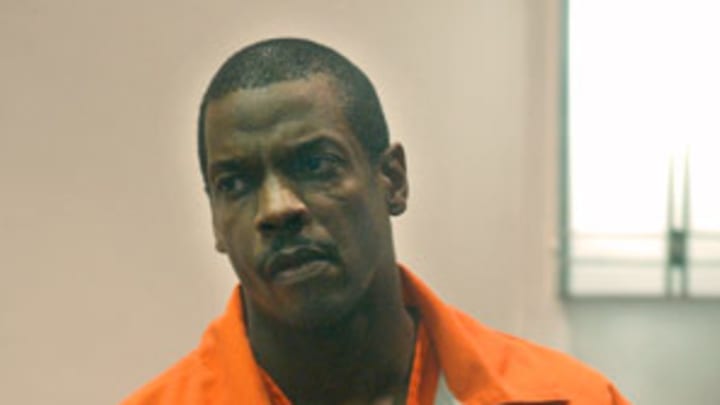Memo to Dr. Drew: Please leave Dwight Gooden alone


This column is for Dr. Drew Pinsky. Yes, Doctor. For you.
According to a report on the website TMZ, the upcoming season of your show, Celebrity Rehab with Dr. Drew, will feature Michael Lohan (Lindsay's father), Tareq and Michaele Salahi (the couple that allegedly crashed a White House party), Bai Ling (an actor from The Crow), Jeremy Jackson (an actor from Baywatch) ... and Dwight Gooden.
Dr. Drew, as a human being who grew up watching Gooden pitch for the Mets, and as a journalist who chronicled his ups and downs in my book, The Bad Guys Won, I am asking you to do the right thing and exclude him from your program. Please.
According to the American Psychiatric Association's Principles of Medical Ethics, a therapist should "always treat the patient with respect and compassion in a professional manner and capacity." In a professional manner and capacity.
As the son of a substance abuse specialist and the husband of a social worker, I feel quite confident in saying that there's nothing professional in stripping away the final strands of a person's dignity on national television; in placing five or six of your "celebrity" patients in a single house, a la The Surreal Life, with cameras recording their every deed and misdeed. Not that this should surprise anyone familiar with your track record -- a psychiatrist who feels comfortable publicly diagnosing patients he's never even met (as you've done with Charlie Sheen and Michael Jackson) probably shouldn't be held up to any gold standards. Or, frankly, any standards at all.
But, alas, I digress. Dr. Drew, if you feel it's proper to make the guy who played Griffin on Party of Five dissolve into a wad of nothingness for our viewing pleasures, well, I don't particularly care. But Dwight Gooden is different.
For those of us who grew up in New York in the 1980s, Dr. K is as legendary and important an icon as Reggie Jackson or Mickey Mantle were to earlier decades. He came along as a 20-year-old rookie in 1984 and, in the span of a few months, singlehandedly transformed the Big Apple from a Yankee town to a Mets town. Gooden was the shy, well-mannered kid with the 95-mph fastball and the untouchable 12-to-6 curve. He was a gift from the baseball Gods, a sympathy present to the follows of an organization that, seven years earlier, had traded away Tom Seaver.
Even as Gooden's star faded, as he went from the 1985 NL Cy Young Award winner to the '86 World Series championship to myriad disappointments and suspensions and, inevitably, arrests, we stuck by him. Gooden may have crushed our spirits time after time, but there was always the sense -- well justified, I'd argue -- that he was a good guy lacking self-control. I'll always remember speaking with him at length during spring training in 1999. At the time Gooden was trying to salvage his career with the Cleveland Indians, and I began to ask about his recovery. Without prompting, he darted out of the clubhouse to his car, popped open the trunk and handed me a copy of his recently released autobiography, Heat. "This will answer a lot," he said, signing the inside cover. "I hope you like it."
I did, because Gooden's words and sentiments were honest and raw and well-intentioned. He was an addict, he nearly committed suicide, he now wanted to recover and through hard work and humility he was determined to do so.
That was 12 years ago.
Dr. Drew, I recognize that you're an expert in the field of recovery, and I'm merely a sportswriter. But trust me -- if Gooden is ever going to overcome the addictions that have led to jail time and too many relapses and legal infractions to count, it's not going to happen on VH1 alongside Lindsay Lohan's dad.
The truth is, many celebrities are as addicted to fame as they are any pills or lines or drinks. They demand the spotlight, crave the spotlight, seek out the spotlight, as if without it their lives are sans meaning.
Well, Dwight Gooden needs to learn that his life does have meaning. That he no longer has to carry the emotional baggage of being Dr. K; that, come day's end, it's OK to live humbly and simply and anonymously without signing a single autograph or retelling, for the 12,471st time, the story of Game 6 of the '86 World Series.
You can help him, Dr. Drew.
You can leave him alone.
